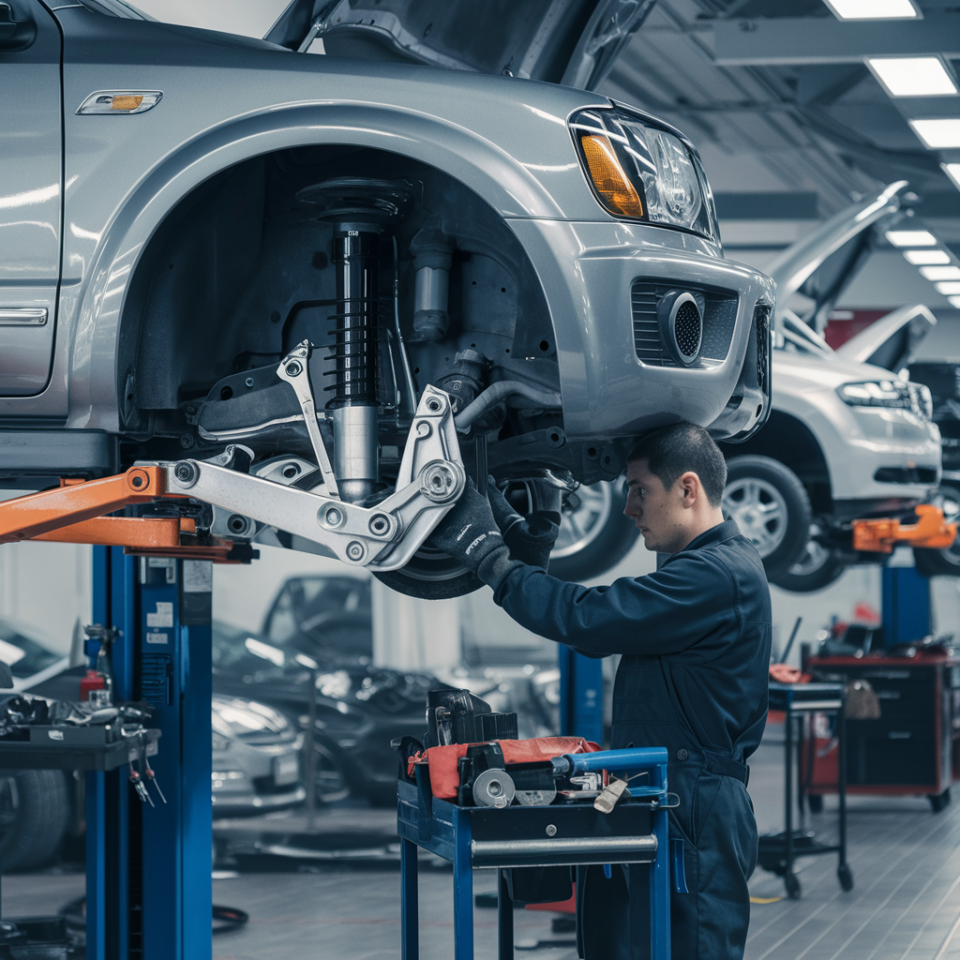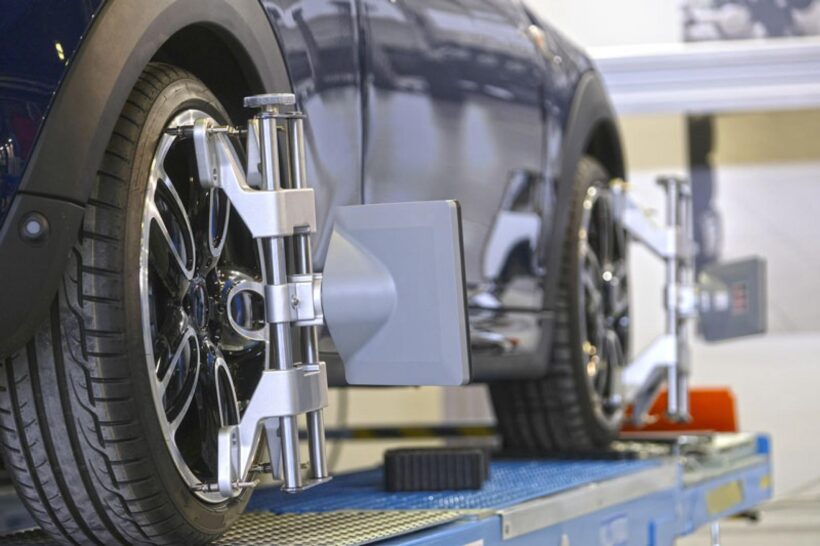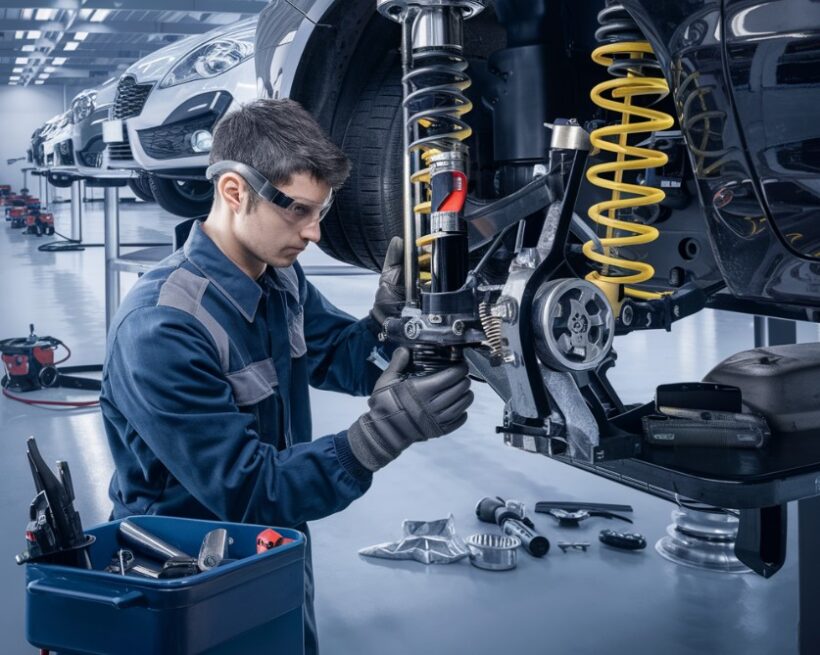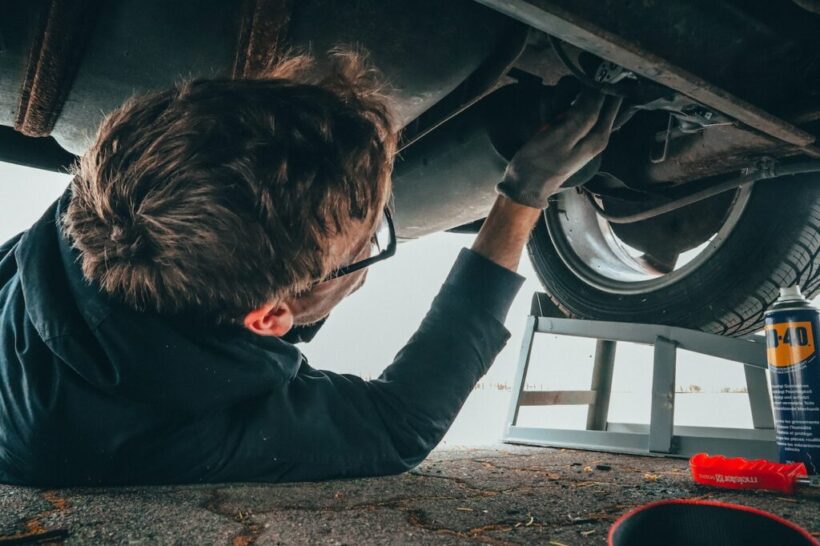Your vehicle’s suspension system is essential for a smooth and safe driving experience. It not only absorbs the bumps and jolts from the road but also helps maintain tire contact, ensuring stability and control.
Over time, wear and tear can take a toll on the suspension components, leading to various issues that, if left unchecked, can compromise your vehicle’s performance and safety. Here are four signs that your suspension needs servicing and why it’s crucial to address these issues promptly.
1. Tires Wearing Unevenly
Among the most apparent indicators that your suspension system may require maintenance is your tires wearing unevenly. A properly functioning suspension ensures that tires maintain even contact with the road, resulting in uniform tire wear. However, if you find that one of your times is seeing more wear than the rest, it could be a sign of suspension issues.
Uneven tire treads might result from wheel misalignment, worn shocks, or damaged struts. These problems can cause the tires to lose proper alignment, leading to an uneven distribution of weight and pressure. If not addressed, uneven tire wear can shorten tire lifespan and adversely affect your vehicle’s handling and fuel efficiency. Regular tire inspections and addressing any signs of uneven wear can help prevent more significant suspension problems in the future.
2. Rough or Bouncy Ride
When a vehicle starts riding roughly or with more bouncing than previously, your suspension system may be in need of servicing. By absorbing both shocks and vibrations, the suspension system works to ensure a smooth and comfortable ride. When your struts or shocks become worn or damaged, they lose their ability to effectively dampen these impacts.
If hitting a bump causes your vehicle to bounce excessively or feel unusually rough over uneven surfaces, it’s time to have your suspension checked. A failing suspension can make your ride uncomfortable and compromise your ability to control the vehicle, especially on rough or uneven terrain. Addressing these issues promptly through professional suspension work can restore the comfort and safety of your driving experience.
3. Nose Dives and Rear-End Squats
A properly working suspension system helps maintain the balance of your vehicle during acceleration and braking. However, if you notice that your vehicle’s front-end dips significantly when you brake or that the rear end squats excessively when you accelerate, it could mean that you are facing a problem with the suspension.
Nose dives and rear-end squats are generally caused by damaged or heavily-worn shocks and struts. Although the average person doesn’t give them much thought, these car parts play a major role in stabilizing your vehicle and preventing excessive movement during sudden stops and starts. A vehicle that nose dives or squats can be more difficult to control, especially in emergency situations. To ensure your safety on the road, it’s important to have your suspension system inspected and repaired as soon as you notice these signs.
4. Pulling or Drifting During Turns
When a car begins to pull or drift to one side while making turns, the suspension system may not be functioning properly. The suspension system helps maintain your vehicle’s stability and keeps all four wheels in contact with the road during turns. When components such as the shocks, struts, or control arms are worn out or damaged, your vehicle may have a tendency to lean or drift when making lane changes or turning.
Drifting or pulling during turns not only makes driving more challenging but also poses a significant safety risk. It can lead to loss of control, especially when driving at highway speeds or on slippery surfaces. If you notice your vehicle drifting or pulling, it’s essential to have a professional mechanic inspect your suspension system to identify and address any issues. Proper suspension work will ensure that your vehicle remains stable and responsive during turns, enhancing both safety and driving pleasure.
5. Excessive Noise from the Suspension
Unusual noises emanating from your vehicle’s suspension system are a clear indication that it requires servicing. These sounds can range from clunking and knocking to squeaking and creaking. Each type of noise can signal different underlying issues within the suspension components.
Clunking or knocking noises are often associated with worn-out or broken parts such as control arm bushings, ball joints, or sway bar links. When these components degrade, they create gaps or looseness, leading to audible impacts during driving, especially over bumps or potholes. Squeaking or creaking sounds, on the other hand, may indicate that your suspension’s rubber bushings or mounts have dried out or deteriorated. These noises usually occur when turning the steering wheel or driving over uneven surfaces.
Ignoring these noises can result in further damage to the suspension system and other connected parts of your vehicle. It can also compromise your vehicle’s handling and safety, making it harder to control, especially during sharp turns or sudden stops. If you notice any unusual noises from your suspension, it’s essential to have a professional mechanic inspect and repair the system promptly. Early intervention can prevent minor issues from escalating into major, costly repairs and ensure your vehicle remains safe and comfortable to drive.
Conclusion
Your vehicle’s suspension system is critical for maintaining comfort, stability, and safety on the road. Recognizing the signs that your suspension needs servicing—such as uneven tire wear, a rough or bouncy ride, nose dives and rear-end squats, and drifting or pulling during turns—can help you address issues before they become more serious. Regular maintenance and timely repairs can extend the lifespan of your suspension components and ensure a smooth and safe driving experience.
If you suspect that your suspension needs attention, don’t delay. Seek professional suspension work to diagnose and fix the problem. By taking care of your suspension system, you’ll not only improve your vehicle’s performance but also protect yourself and your passengers from potential safety hazards.




